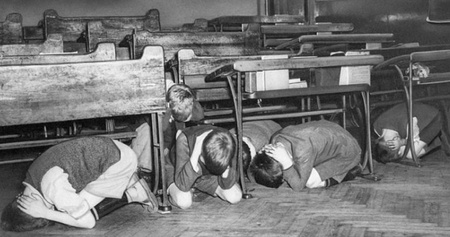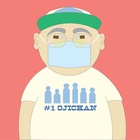Many of us have spent time with folks who have gone through some catastrophic events in their lives. Hearing their stories is humbling, but now we have one of our own.
At one of our last Furutani family dinners before the “stay at home” quarantine, we went around the dinner table to recount any such events in our collective experiences and lives.
I remember as kids we had the “drop drills” and “yellow” and “red” alerts. All were related to a possible nuclear attack circa the Cold War. Remember the Cuban Missile Crisis as President Kennedy played chicken with then Russian Premier Nikita Khrushchev? How about the gasoline crisis, when you could only get gas on alternating days depending on the last odd or even number of your license plate?
But even as we all added our color commentary, we all had to admit that there’s never been anything like this current situation.
To put it into perspective, we went beyond our generational experiences and pondered how our mom and dad and baachan and jiichan went through camp, or how about the Depression. Not our Great Recession of ’08, but the GREAT DEPRESSION of the 1930s.
When Lisa and I helped her mom, Aiko, move from a two-story home to a single-story apartment for safety reasons, we got a glimpse behind the curtain, so to speak. We got a first-hand look at what was behind the serving dish we were looking for and see what was in the back recesses of the cupboard, the closet, the garage.
It was interesting to see the number of reusable Tupperware and “to go” containers she had saved. It was revealing to see that she never seemed to throw anything away. Then I kept stumbling upon stubby remains of pencils no bigger than an inch or so in length. When I surreptitiously disposed of them, Aiko asked if I had seen them. So, not only did she save them, she kept track of them.
I have heard from other friends and acquaintances that the elders in their families had interesting habits when it came to saving things. Yes, they were into recycling long before it became fashionable. The joke with Aiko was if asked about having a plastic bag for whatever, it wasn’t if she had one or not, she wanted to know what size.
Stubby pencils, a ball of multi-colored, multi-length pieces of string, rubber bands on the kitchen doorknob, a wad of aluminum foil, scraps of paper, a mountain of reusable to-go containers so big it would make Marie Kondo blush, but why?
The common answer from the peanut gallery and affirmed by head-nodding and a muted “that’s right!” was that they experienced the Depression. That period of time where uninhibited speculation by an unregulated capitalist system imploded onto itself, causing a worldwide economic pandemic that touched everyone, everywhere.
It wasn’t a case of “one man’s junk is another man’s treasure.” It was survival mode where you didn’t throw anything away. What was valuable, what you just might need you kept, became BOP, the basic operating procedure of the day.
Massive unemployment, businesses closing doors en masse, bread lines, soup lines and a Republican president, Herbert Hoover, who downplayed the crisis and didn’t act as needed, was thrown out of office. He was replaced by a Democratic president who seized the day and the bull by the horns.
Unlike Hoover, newly elected President Franklin Delano Roosevelt quickly responded and changed America. He put people back to work, he got government to build infrastructure and he established governmental institutions that most thought unachievable or unthinkable but serve us well today. Unemployment benefits, Social Security, the Tennessee Valley Project are a few that are his legacy. So is putting Japanese Americans in concentration camps during WWII, so nobody’s perfect.
So, when younger generations, when our grandchildren or their children ask: Why is there always a small bottle of hand sanitizer around? Why does Grandma always have so much toilet paper in the back bedroom? What is this bumping elbows thing they do? How come they resist going out to a restaurant and say let’s just have it delivered? Grandpa never stands too close to anyone, he keeps his distance, usually about 6 feet away, why? Do they wear those masks because they’ve always done it in Japan? Why do I have to wash my hands so much?
Knowingly, folks will nod their heads and whisper that the elders experienced the 2020 COVID-19 Pandemic, which lasted for? months/years.
* This article was originally published in The Rafu Shimpo on April 30, 2020.
© 2020 Warren Furutani




